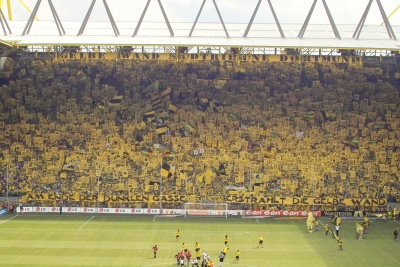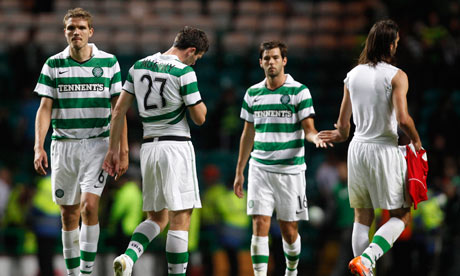Naismith, who put in a tireless shift and thoroughly deserved his MOTM award, latched on to a lovely cushioned header from Kirk Broadfoot to flick the ball past Dimitar Ivankov. The Rangers faithful have waited a while for a Champions League victory and the SPL champions put in an excellent performance to snatch the three points on matchday two to put Smith's men joint-top of the group.

In all honesty, we did not know much about our Turkish opponents after their tremendous achievement of sneaking in-front of Fenerbahce on the final day of the season to win the Turkish SuperLig, the first-side outside Istanbul since Trabzonspor won the title in 1984. The Green Crocodiles followed up the example of Sivasspor from the previous season in making a strong title challenge - if only we could have this in the SPL.
We have heard alot of figures from the last week, Sir Alex claimed Bursa had spent £100m and we heard in rags this week that they'd spent £70m. To be honest, I am not sure how accurate either figure is because it was fact that Bursaspor had a budget quite minuscule to the 'big three' from Istanbul only a year ago.
Argentinian playmaker Federico Insua was the stand-out performer for Bursaspor last night I felt and it was frustrating to see our midfield give him the freedom of G51. Insua had a spell last year on loan at Boca Juniors, but did not look anywhere near the same player as he was shifted to the left-wing in a 4-3-3 under Carlos Bianchi at La Bombonera. Perhaps, it is part of the Champions League experience seeing players like Insua so comfortable in possession of the ball. Pre-match, we knew the main threat would come from Volkan Sen on the right-side of their attack and Kirk Broadfoot did a damn good job in blocking the little 'No.10'.
The solid 'blue-wall' which was commanded by Davie Weir, Madjid Bougherra and Sasa Papac kept a second clean-sheet in successive games after their exploits at Old Trafford but matchday three will bring a new challenge when La Liga league-leaders Valencia make the trip to Glasgow looking for the three points after failing to hold out against Manchester United last night.
The bus will need to be firmly parked on the 20th of October when Juan Mata and co try to find a way through the resilient Rangers defence. It will be a long night and hopefully we can make use of set-pieces which were below-par from Steven Davis. Just a thought, that players such as James Beattie could be a massive asset if he manages to be passed fit for that much if we can deliver some good balls into the box. I see it as our only way of really testing Valencia and I am not sure they will fancy constant cross-balls with Big Lee, Beattie, Broadders and Boogey all battling to get on the end of them.











